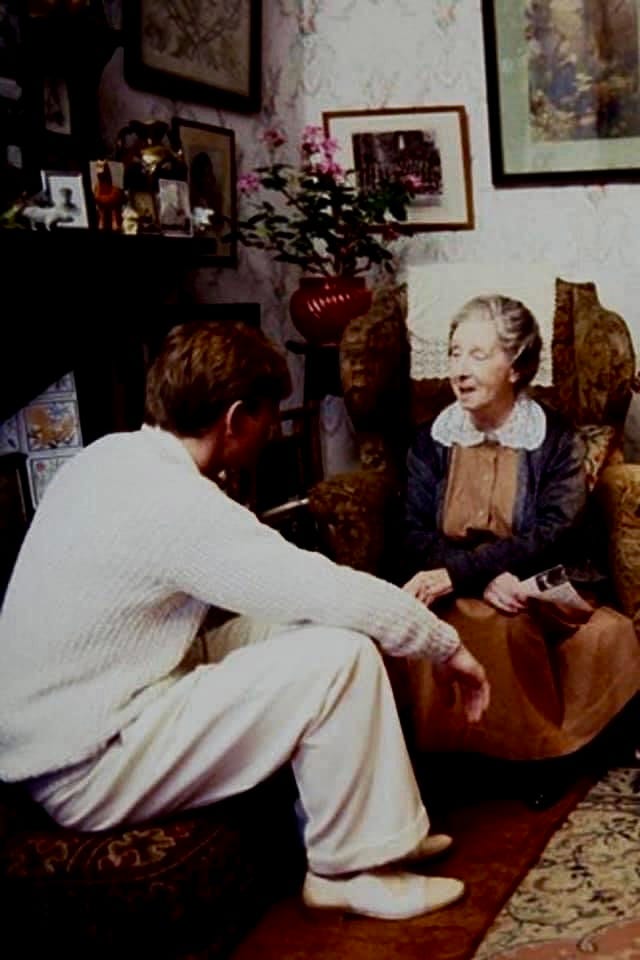Have you ever wondered what happened to Nanny Hawkins? She is still there when Charles shows up with his troops and runs up to visit her all alone in that big old house. But what happened after that? Waugh never says. It bothers me a bit.
Nanny is like the steady hub of a spinning, out of control world. The same always with simple love and interest. Not naive - she knows the ‘naughtiness’ and mistakes of her charges. She just loves on as though they were still children. That is why they all visit her. Stirring up that hope within themselves of still being loved as children no matter how tragic their choices or dark their sins. Nanny Hawkins knew them before all that. Her love never changes. You wouldn’t be surprised if she lived on forever waiting for them to return - promising to always be there.
She seems as simple and mysterious as Tom Bombadil. Above the drama and away from the fray but important. You can’t put your finger on it really. But you wish she was real and lived at the top of your own stairs.
What was she to Waugh? A window on the happy simplicity of heaven in a world complicated by sin? The light in a dark house that never goes out - like a human sanctuary lamp? You feel her as a warmth as soon as the door to her parlor is opened each time. You feel that Sebastian and Julia are safe when they are sitting on her sofa. You don’t want them to leave her parlor - you can almost feel your apprehension gathering as they get up to go. For that matter YOU don’t want to go.
But She just fades out of the story in the end as Tom Bombadil disappears from the greater story of the Rings.
Did someone come for her? Was her work at last done? Waiting for Sebastian and Julia to become like children once again - battered and beaten and worse for wear - but children born again to God. Is her little parlor a foretaste of heaven?
Nanny Hawkins is so essential - and yet her meaning is elusive. She is one of the most fascinating characters created by a writer. At least she is to me.





That is very insightful, Nanny personifying the sanctuary lamp. I think you hit the nail right on the head. Anglophilia aside (ditto), I think this demonstrates some of the appeal of BR, that repeated readings reveal further meanings.
Can you help me understand the appeal of Brideshead? I tried to watch it but found it off putting, and I haven't been able to bring myself to read the book, though it seems so beloved by many.